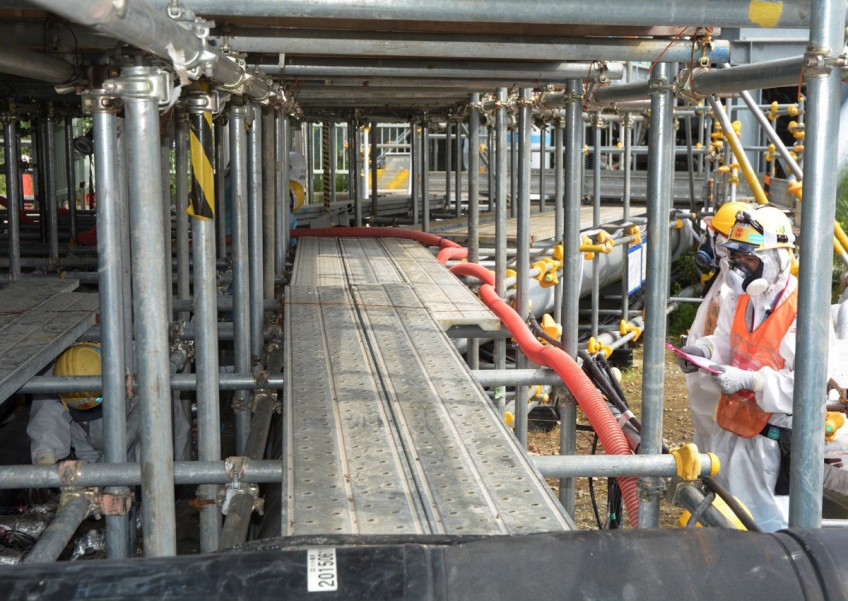Fukushima reactor 'ice wall' nearly finished

TOKYO - The Fukushima nuclear plant's operator Tuesday started freezing the last section of a $320 million ice wall designed to cut down on vast amounts of contaminated water at the site of the worst atomic accident in a generation.
Tokyo Electric Power (TEPCO) began pumping coolant into the remaining seven metres (23 feet) of its 1.5-kilometre underground wall which encircles four reactors along Japan's northeast coast.
Underground pipes circulate the coolant and freeze soil around the buildings.
The 30-metre deep wall is designed to block underground water from nearby mountains from flowing into the shattered complex and then seeping into the Pacific.
It is reportedly expected to take more than two months until the wall is completely frozen.
The huge utility has been building the barrier since March 2016 with the government picking up its 34.5 billion yen ($320 million) price tag.
Even now, with the ice wall almost complete, about 140 tonnes of underground water flows into the plant daily, forcing the company to pump it out and store it in on-site tanks.
"When the ice wall is completed, we estimate that the amount of underground water flowing into the complex will be less than 100 tonnes," a company spokesman said.
But some experts have cast doubt on the ice wall's effectiveness in containing the problem.
Cleaning up the world's worst nuclear accident since Chernobyl in 1986 is expected to take decades.
On March 11, 2011, a magnitude 9.0 undersea earthquake off Japan's northeastern coast sparked a massive tsunami that swamped cooling systems and triggered three reactor meltdowns at the Fukushima plant.
Workers had to keep pouring water onto the reactors to prevent the temperature of the nuclear fuel from rising uncontrollably.